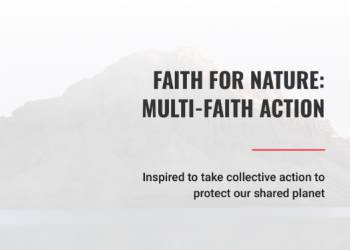Multi-faith action conference presents opportunity to reflect on the intersection between faith and the natural world
Taking place between 5 and 8 October, the Icelandic government, together with the United Nations Environmental Programme and partners around the world, including Religions for Peace as well as the Baha’i community of Iceland, convened a global conference entitled “Faith for Nature: Multi-Faith Action”. Various speakers explored the important role that values and ethics, particularly inspired by faith, play as a complementary source of knowledge to science in generating respect for the natural environment and in motivating action.
The event featured key speakers from religions from all over the world and was opened by the President of Iceland Guðni Th. Jóhannesson.
In her welcoming remarks, Professor Azza Karam, Secretary General of Religions for Peace, said, “Religious leaders and religious institutions are the benevolent gatekeepers of social norms and behaviors in most societies around the world.”
“Our challenge is not whether we should engage with religious actors, but to achieve a betterment and enhancement in the form of engagement.”
During the conference, participants called for the endorsement of a “Faith for Earth Coalition” to inspire cooperation with and among faith leaders and faith-based organizations across the globe to achieve the Sustainable Development Goals.
Principal Representative of the Baha’i International Community, Ms. Bani Dugal also delivered a high-level address to the conference highlighting the role that faith can play in informing our relationship with nature and each other as well as its power to effect constructive change in behavior.
“When true to the spirit of its founders, religion has been one of the most powerful tools for the creation of new and beneficial patterns of individual and community life”, Ms. Dugal stated.
In encouraging collective unified action among all actors in support of the natural world, Ms. Dugal shared, “The current state of the planet is the result of billions of compounding individual choices, with lesser and greater impact. What if religion could generate a stronger opposing force by inspiring countless souls to take a greater number of decisions that work for the betterment of society?”
Ms. Dugal also highlighted the experiences of a group of Baha’is in Mwinilunga, Zambia, as an example of faith motivating action to build new patterns of relationships and corresponding social structures that embody the principle of the oneness of humankind. Describing the efforts of the group, who, inspired by their faith, began to raise consciousness about sustainable practices to rehabilitate a depleted ecosystem, Ms. Dugal commented, “Indeed, an appreciation for our natural heritage can lead to concerted action to protect the environment and also strengthen patterns of community life.”
